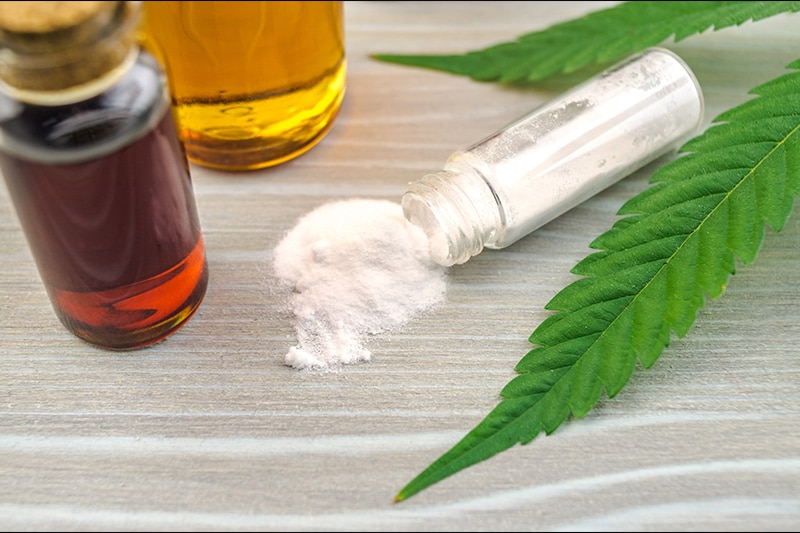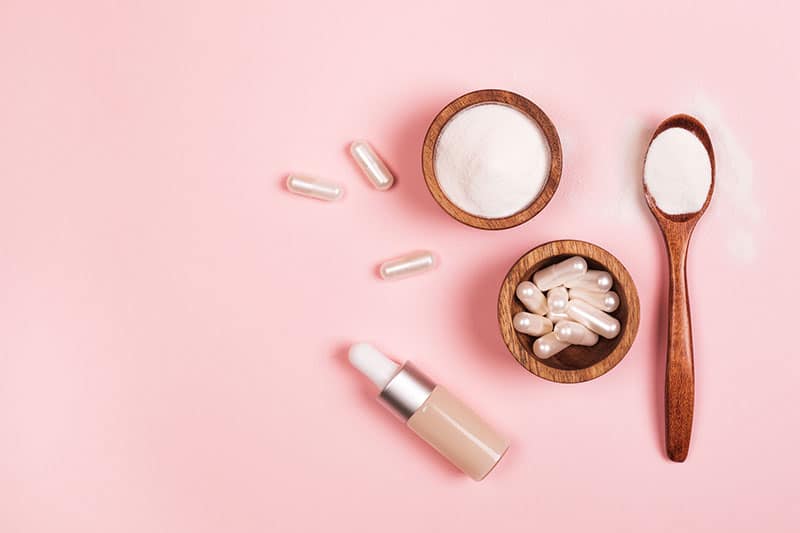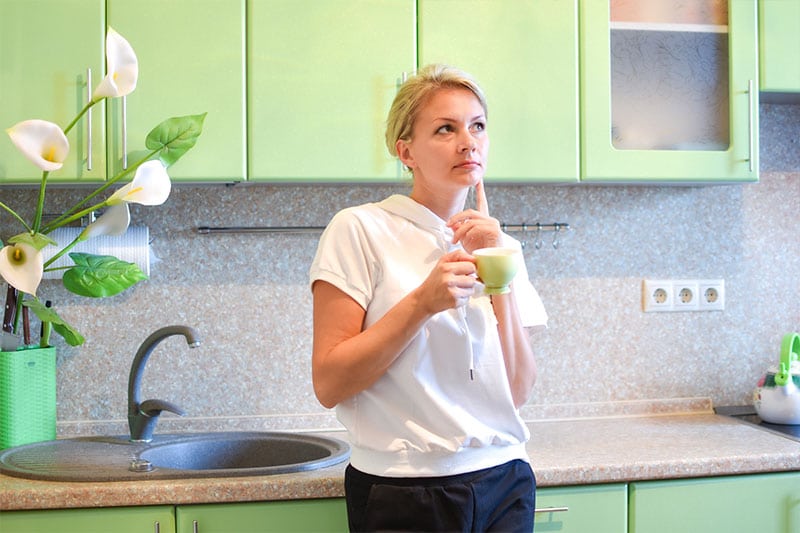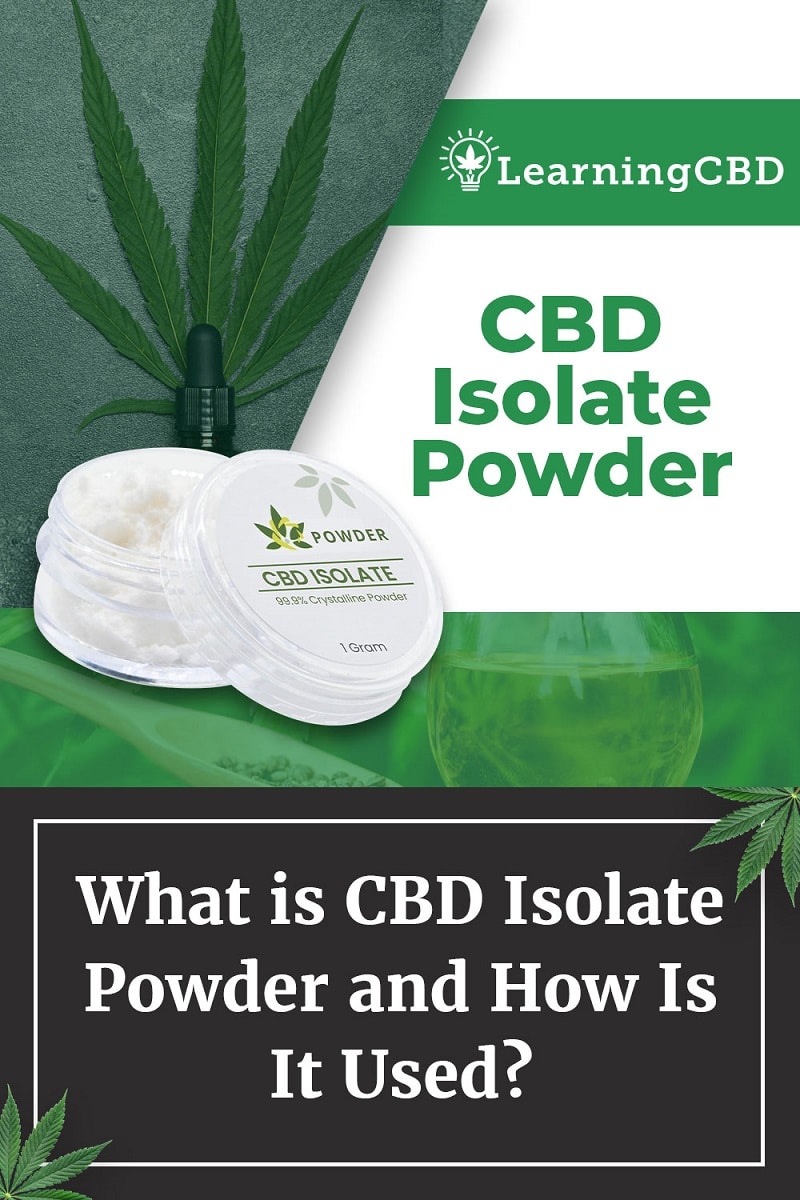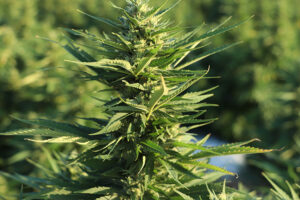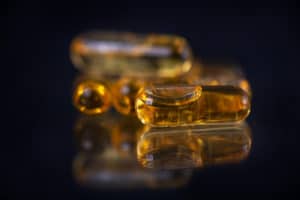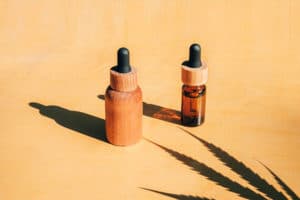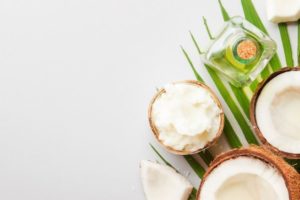If you want to use CBD oil, but you’re worried about testing positive for THC in a drug test, consider learning how to use CBD isolate powder optimally.
CBD isolate powder is the only CBD product that contains no traces of THC. You won’t risk failing a drug test after taking CBD isolate powder, for example. Isolate is also the easiest CBD product to measure when administering the correct dosage.
Now that CBD or cannabidiol is no longer considered a controlled substance, it’s freely traded as a potential therapeutic health supplement. The 2018 Farm Bill has relaxed the laws on selling hemp-derived CBD products with less than 0.3% THC.
It is great news for people who want to use CBD products for epilepsy, insomnia, chronic pain, multiple sclerosis, anxiety, or cancer. CBD is also not considered a public health issue as it’s non-psychoactive.
The negligible THC content in full-spectrum CBD oil means it’s wildly highly unlikely you’d test positive for THC in a drug test. Due to a lack of regulation, though, some people have tested positive for THC in drug tests after using CBD oil, so caution is recommended.
Drug Tests at Work
In December 2019, a school bus driver in Utah lost her job when she tested positive for THC in a drug test after taking CBD oil.
Unfortunately, some CBD oil can contain more THC than stated on the label. It might be problematic if you are taking it for chronic pain, cancer, epilepsy, multiple sclerosis, or insomnia, and you face drug tests at work, for example.
Many industries require regular employee drug screenings, such as hospitals and healthcare, transportation, logistics, government, manufacturing, and the automotive industry.
If you expect to be drug tested at work, use CBD isolate powder instead.
Misleading Labeling
In June 2019, the Centre for Medical Cannabis released details of tests run on CBD products in the UK. It found that many contained little to no CBD, despite claims on the packaging. Others had high traces of THC, where it was claimed there was none.
The Centre for Medical Cannabis in the UK has now launched a CBD Quality Charter to tighten regulations and improve consumer standards.
The industry is in its infancy, but it is rapidly expanding. Regulatory bodies are finding it more challenging to monitor and enforce standards around cannabinoids.
The Centre for Medical Cannabis has also found that many producers of CBD are misinformed on the legal side, leading to an increase in products with inaccurate claims of CBD and THC levels.
Until industry standards have improved, be careful when choosing your CBD manufacturer.
Ease of Dosage
CBD isolate powder is easy to measure accurately due to its purity. You can use precision scales to measure your dose or use a 10mg spoon like this one.
More information on CBD and drug tests can be found here.
What is CBD?
What is CBD, and why are more people taking it?
CBD is short for cannabidiol, which is a phytocannabinoid (a compound found in a plant). It accounts for 40 percent of all the compounds and cannabinoids in cannabis.
The compound is effective for treating anxiety, chronic pain, multiple sclerosis, epilepsy, insomnia, and inflammation. It’s not completely understood, though, but it’s proven to help with a wide range of medical conditions.
Unlike THC, CBD is non-psychoactive. You don’t get high when you take it. THC is psychoactive, which is why cannabis with THC is a Schedule 1 drug.
The evidence for CBD as alternative therapeutic medicine is overwhelming. It’s been demonstrated to reduce seizures in children with epilepsy by as much as 100 percent, where other traditional medicines have failed.
In September 2019, a CBD-related drug called Epidiolex was approved for treating children with rare forms of epilepsy, Lennox-Gastaut syndrome, and Dravet syndrome in the UK. It will now be distributed around Europe.
What Are Cannabinoids?
Cannabinoids are compounds found in cannabis plants. There are 113 known cannabinoids found in cannabis, including:
- THC (tetrahydrocannabinol): The psychoactive compound that gets you “high.”
- CBD (cannabidiol): The subject of today’s study.
- Terpenes (or terpenoids): Found in plants other than cannabis. It creates a distinct pungent smell in cannabis and is defined as an essential oil.
- CBG (cannabigerol): Non-psychoactive compound known to fight inflammation, pain, and nausea. Possibly linked to slowing certain cancers.
- CBN: Mildly psychoactive and closely related to CBD. Found in degraded samples of cannabis.
- CBDA: The acidic form of CBD after decarboxylation.
How Do Cannabinoids Work?
Cannabinoids bind to receptors in the central nervous system and peripheral nervous system.
In biochemistry, the central nervous system is known as CB1, referring to the brain and spinal cord. Spinal nerves in the spinal cord carry signals from the body to the brain and vice versa.
The peripheral nervous system is known as CB2. It refers to the cells and nerves that extend outside of the brain and spinal cord and connects to the sensory organs, such as skin, eyes, nose, ears, and mouth.
Research on cannabinoids in the 1990s revealed that CBD, THC, and cannabinoids bind to receptor cells within the central nervous system (known as endocannabinoids).
What Are Endocannabinoids?
Endocannabinoids are similar in molecular structure to phytocannabinoids. Interestingly, everyone naturally produces endocannabinoids.
The function of endocannabinoids is to regulate bodily processes, such as sleep, rest, stress, hunger, and pain. It has a balancing effect, called homeostasis.
Ruth Ross studied the pharmacology of endocannabinoids for around 20 years. Much like cannabinoids in cannabis plants, endocannabinoids are cells within the central nervous system (the brain and spinal cord) and peripheral nervous system (the tissues and nerve endings in the spinal cord, muscles, and skin).
Endocannabinoids balance the central nervous system when it’s under stress, for example, by helping produce cortisol. Studies have found that endocannabinoids help the body adapt to stress more efficiently so that every time a similar situation occurs, your body handles it better.
Endocannabinoids also help the body to reset after a fight-or-flight response. When in danger, your system produces adrenaline, muscles tense, digestion causes havoc, and the heart rate increases. Ruth Ross likens adrenaline receptors to a “lock” and adrenaline as the “key.”
What Are Receptors?
Receptors are basic chemical structures that exist in cells within the brain and body. Different receptors correspond to different parts of the nervous system, for example. It transmits messages between cells, enabling the body to respond to changes inside and outside the body (as with the five senses).
The nervous system is divided into two types—the central and the peripheral nervous systems, referred to as CB1 and CB2, respectively. Certain cannabinoids act as a kind of switch for either CB1 or CB2. Pure CBD tends to bind to both CB1 and CB2, whereas THC binds only to CB1.
It makes sense as the psychoactive properties affect the central nervous system. When someone takes CBD, the molecules react with receptors. It’s this trigger or “lock and key” that produces the reaction to the CBD entering the nervous system.
Research has proven that the anti-inflammatory effects of using CBD are apparent, depending on how it is taken, the physical make-up of the consumer, and dosage.
Full-spectrum CBD will provide the most therapeutic benefits, but CBD isolate powder is also effective if the quality is high, and it’s dosed correctly.
What is CBD Isolate Powder?
CBD isolate powder is 99 percent pure CBD or cannabidiol (the main cannabinoid after THC).
Full-spectrum CBD, by contrast, contains all the cannabinoids found in cannabis, apart from the psychoactive THC. Many consumers prefer full-spectrum CBD, which creates the entourage effect and increases potency.
Others prefer to use CBD isolate powder as it’s easier to dose and doesn’t run the risk of exposure to THC.
CBD isolate is separated and extracted from all the other cannabinoids, compounds, and plant matter in hemp. It’s extracted from hemp in the same way as full-spectrum CBD but refined further.
It is completely free of THC (the chemical in cannabis that gets you “high”).
CBD isolate powder comes in a white crystal form crushed down. It’s odorless, tasteless, and packed with 99 percent CBD.
There are 550 varieties of the cannabis plant, each with varying combinations of cannabinoids.
CBD Isolate: Usage and Benefits
Cannabidiol (CBD) is a chemical compound present in cannabis sativa, indica, and ruderalis—three cannabis plant species. As a therapeutic alternative, many users find that CBD can ease anxiety, seizures, and body aches.
CBD isolate—the key term being “isolate”—is the purest form of CBD, containing 99% cannabidiol. Unlike oils and tinctures, CBD isolate has a powdery quality, similar to confectioner’s sugar.
Before taking CBD isolate, ask yourself: “What do I need, and what am I looking for?” Remember that this crystalline substance is largely tasteless, odorless, and, since there’s lesser THC content in CBD isolate, high-less.
If you feel like embarking on a psychedelic trip, you won’t find much success from CBD isolate. However, if you’re looking for something to help you relax, sleep, or ease pain, CBD is likely your best option. Here’s a list of more benefits users have claimed from taking CBD isolate:
Swelling and Pain Reduction
People who experience chronic pain are starting to wean off traditional opioids in favor of CBD isolate for its milder side-effects. Compared to full-spectrum CBD products, like oils and tinctures, isolate powder also has more potent analgesic properties.
Improved Metabolism
Regulating your CBD intake can potentially lower the risk of metabolic disorders and prevent obesity. Studies suggest that CBD aids in digestive functions.
Improved Sleep Cycles
Preliminary research shows taking CBD can lead to better sleep. Consider using CBD isolate if you find yourself frequently tallying sheep as you lie awake at night.
Anxiety Relief
CBD may influence an individual’s mood by attaching to cannabinoid receptors in our body and stimulating our brain to respond to serotonin. In the same study cited above, researchers found that CBD has exhibited anti-anxiety properties.
Drawbacks of Taking CBD Isolate
Using CBD can also trigger side-effects, such as:
Dry Mouth
Dehydration, or “cottonmouth,” is a commonly-known side-effect of CBD. Remember to drink plenty of water to keep yourself hydrated and avoid feeling lightheaded.
Drug Interference
Combining CBD isolate with certain medications could cause you to suffer adverse effects. Talk to your doctor first before incorporating isolate powders into your regimen.
Full-Spectrum CBD vs. CBD Isolate
Full-spectrum CBD contains all of the cannabinoids, nutrients, and plant matter available. Studies have indicated that while CBD isolate is pure cannabidiol, refining it to a single molecule makes it too pure.
The refining and winterizing process that full-spectrum CBD undergoes to make isolate removes the other compounds, so you miss out on the entourage effect. The effect is created by the various cannabinoids working together to make it more potent.
Full-spectrum CBD delivers more bang for your buck, but if the cost is an issue, or you’re worried about drug tests at work, CBD isolate is the smarter choice.
Who Should Use CBD Isolate?
People use CBD isolate for various purposes, but the primary reason is often for relief. This compound is popular among athletes and active individuals who are prone to injury and trauma. They ingest it as a dietary supplement to ward off debilitating illnesses like joint pain and nausea. Some claim that CBD can promote better cognitive function.
How is CBD Isolate Powder Made?
CBD isolate powder is made by extracting the CBD from the hemp.
It’s then refined by winterization and decarboxylation, processes that remove other terpenes, plant matter, chlorophyll, and cannabinoids.
A solvent is used to wash it. When the solvent evaporates, pure CBD crystals remain.
Extracting the CBD
There are two ways to extract CBD from hemp:
- Supercritical CO2 extraction
- Alcohol extraction
1. Supercritical CO2 Extraction
CO2 extraction is a chromatography technique used to extract chemicals from plants (for products like decaffeinated coffee and essential oils for herbal and food supplements).
A supercritical CO2 extraction machine has three components:
- An extractor vessel into which the hemp is placed.
- A separator vessel container with CO2 connected to the extractor vessel.
- An accumulation vessel to catch the CBD oil and CO2.
The raw hemp (known as trim) is first placed in an extractor vessel connected to a bottle of liquid carbon dioxide (CO2). The liquid carbon dioxide is then heated to a certain temperature and put under high pressure so that it reaches a supercritical state. The CO2 turns into both a gas and a liquid.
When the liquid CO2 is in this supercritical state, it’s infused with the plant matter. The process dissolves the plant matter, leaving behind the extracted cannabinoids. These cannabinoids are pushed through to the separator vessel at lower pressure.
In the separator chamber, the change in pressure causes the oils to separate from the carbon dioxide. These oils can be collected and further purified to form CBD isolate.
Supercritical CO2 extraction is considered the highest quality oil as it doesn’t rely upon potentially carcinogenic chemicals.
2. Solvent-Based Extraction
The other method of extraction involves dissolving the plant matter in a solvent, such as ethanol, butane, propane, or isopropyl. The cannabinoid solvent infusion is then evaporated, isolating the CBD.
Although solvent-based extraction is cheaper for producers, supercritical CO2 extraction is considered far superior. Solvent-based extraction uses ethanol or propane, which can leave toxic residues in the oil and could be carcinogenic.
Both types of extraction deliver the same result: a full-spectrum CBD oil extract.
From CBD Extract to CBD Isolate Powder
Once the CBD has been extracted, it becomes a full-spectrum CBD oil, which contains all the nutrients, cannabinoids, and plant matter.
By refining it further, it can be made into CBD isolate powder through winterization and decarboxylation.
Winterization
Winterization is another extraction method that purifies the CBD. The full-spectrum CBD oil is soaked in alcohol and frozen. It removes the waxes, terpenes, and plant matter.
The process is ideal if you’re looking to use pure cannabinoids, but it can reduce potency.
Decarboxylation
Decarboxylation heats THCA and CBDA in cannabis, which turns it into the active compounds, THC, and CBD.
THCA and CBDA are non-active until they have been through decarboxylation.
How to Use CBD Isolate Powder
CBD isolate can be used in four different ways: ingesting, inhaling, topical application, and via the salivary glands.
How you choose to use CBD isolate powder will depend on how soon you wish to feel the effects. Some methods have higher bioavailability, which means that the effects are faster and more effective.
Ingesting
If you infuse CBD isolate with oil, such as olive oil, it can be used to bake or cook, or popped under your tongue. It’s tasteless and undetectable.
CBD isolate powder doesn’t dissolve in water, so it has to be infused with an oil, like:
- Cannabis butter
- Cannabis dressings and sauces
- Cookies
- Brownies
Inhaling
CBD isolate powder can be sprinkled in joints, smoked in a specially designed pipe called a dab rig, or consumed in a wax pen.
Dabbing
Dabbing is smoking CBD oil using a specially designed type of pipe, called a dab rig, or a slim device called a wax pen. These pipes are made for smoking CBD concentrated oils and work by vaporizing the CBD oil to be inhaled.
Dab Rig
A dabbing rig looks like a bong as it has a chamber for water. Attached to it is a smaller chamber made of quartz or titanium, called a nail, which is heated with a blow torch. The CBD is dabbed into the chamber and heated.
It’s popular because its effects are more potent than ingestion or sublingually.
Wax Pen
Wax pens work just like dab rigs to vaporize the CBD oil, but these use a battery coil to heat the CBD oil.
Is Inhaling Safe?
There is currently some debate as to whether vaping or dabbing is safe on the lungs. Recent research (2018) has shown that long-term use of dabbing may cause pneumonia-like lung damage in users.
Low to moderate dabbing of marijuana is considered safe, but other research suggests that long-term heavy use can cause COPD (chronic obstructive pulmonary disorder). It is still yet to be fully proven, though.
The jury is still out on this, so it might be wise to take CBD through ingestion and sublingually to minimize potential risks.
Topical Applications
CBD isolate has been proven to help arthritic problems or back pain when applied topically. By mixing with a carrier oil, such as coconut oil or jojoba oil, it dissolves. When applied to sore and inflamed joints, it has a positive effect on reducing inflammation.
Sublingual
Taking CBD via the membranes under the tongue is another effective way to use CBD isolate. The bioavailability of this method is ideal. The CBD dissolves straight into the bloodstream rather than waiting for it to digest.
How Much CBD Isolate Powder Should You Take?
There is no consensus on how much CBD isolate powder to take as it depends on various factors.
There is an agreement that a higher dosage of CBD isolate powder is required. It decreases the bioavailability as it lacks the entourage effect achieved with full-spectrum CBD.
Working out the dosage is an individual affair, but a good starting point is to consider:
Weight
Your body fat might influence the absorption rate of CBD isolate. If you’re a little overweight, you increase the dose.
Method of use of CBD isolate
If you are dabbing with a dab rig or a wax pen, you’ll probably need less CBD isolate than if you’re ingesting it.
Supplier recommendation
Different manufacturers supply CBD isolate powders of varying strengths.
Age
Young children with epilepsy need a much lower dose than adults.
Tolerance to CBD
If you’ve been using CBD for a while, you may have built a tolerance and could need to increase the dosage.
The consensus is to start small (at 3-5mg of CBD isolate powder per dosage). If no effects are felt after about a week, try increasing the dosage by a 2mg until the effects are felt.
Once you’ve found the right dosage, keep monitoring it. If the effects wear off, increase it.
CBD Dosage Calculator
If you’re not sure, try the CBD dosage calculator created by the Food and Drug Administration (FDA).
The handy tool is not prescriptive, but it can suggest guidelines on the dose for optimum effect.
More Questions You Might Have about CBD Isolate
Why does CBD isolate effects vary?
Your genetic makeup and lifestyle dictate your body’s response to CBD isolate. A person with more body fat will typically need to increase their dosage to enjoy CBD isolate’s effects. Your biochemistry may also play a role in how well you tolerate it.
How do you properly store CBD isolate?
Concentrates like CBD isolate are prone to spoiling when directly exposed to air, light, moisture, and heat. Keep your products in a cool area with plenty of shade to preserve their freshness.
Can I buy isolate powder in bulk?
Yes, you can. CBD prices fluctuate as cannabis becomes more prevalent in the country, so we recommend buying from wholesale dealers rather than retailers. Visit your local hemp farm and see if they offer discounts.
Can I add CBD isolate into my food?
Absolutely. Since isolate powder has no distinct taste nor aroma, it has the most versatile use among all CBD products. You can easily spike your morning smoothie with isolate and reap the many benefits of CBD. You could even infuse it into your brownies and cupcakes.
The most significant benefit of isolate powder is how easily you can measure it, so you know precisely how much CBD you’re ingesting with every teaspoon. Be wary of using it at high temperatures, though, as CBD could lose its potency. Keep your oven temp down to 350°F or lower. It’s also helpful to remember that CBD isolate does not dissolve in water.
Can I get high from CBD isolate?
No, you won’t get high from taking CBD isolate. The actual “high” people experience from cannabis comes from its psychoactive component, THC. CBD isolate contains much higher concentrations of cannabidiol, leaving very little THC. However, the extraction process doesn’t remove THC altogether. CBD isolate products will still have traces of THC, but not enough to effect your mental state.
If I take CBD isolate, will I fail a drug test?
No, you shouldn’t fail a drug test. CBD isolate contains a negligible amount of THC that is practically undetectable. However, anecdotal cases show that some athletes who use CBD isolate have failed drug tests because the product did not accurately indicate the actual THC amount. In such cases, we recommend double-checking the product’s label or scouring the internet for product reviews. Always purchase from reputable sellers.
Is it possible to overdose on CBD isolate?
Yes, you can take too much CBD in the same way that you could suffer a water overdose. Think of it this way: The medically-recommended amount of water intake is roughly one quart (7 to 8 glasses) of water within a 12-14-hour period. Water intoxication or hyponatremia occurs when you start chugging more water than your kidney could manage. Likewise, you can use too much CBD, but only if you go overboard. You’ll know when CBD is working if you’re sleeping, thinking, and eating better.
Conclusion
The best way to find out whether CBD isolate works for you is to try it out yourself. There are now many ways to use isolate powder, so you can freely choose which method you fancy the most. However, remember to consult your doctor if you have pre-existing conditions or are taking medications. The rule of thumb when trying out a drug is to take things slowly and in incremental doses.
FAQs About CBD Isolate Powder
Question: What is CBD isolate powder?
Answer: CBD isolate powder is the only CBD product that contains no traces of THC. You won’t risk failing a drug test after taking CBD to isolate powder, for example. Isolate is also the easiest CBD product to measure when administering the correct dosage.
Question: What are the benefits of using CBD isolate?
Answer: There are a lot of benefits you can get by consuming CBD isolate. Some of those include metabolism improvement, better sleep, pain reduction, and anxiety relief.
Question: Who should use CBD isolate?
Answer: People use CBD isolate for various purposes, but the primary reason is often for relief. CBD isolate is also used by people who could not be at risk of getting THC.
Question: How do you properly store CBD isolate?
Answer: Concentrates like CBD isolate are prone to spoiling when directly exposed to air, light, moisture, and heat. Keep your products in a cool area with plenty of shade to preserve their freshness.
Question: Can I get high from CBD isolate?
Answer: No, you won’t get high from taking CBD isolate. The actual “high” people experience from cannabis comes from its psychoactive component, THC. CBD isolate contains much higher concentrations of cannabidiol, leaving very little THC. However, the extraction process doesn’t remove THC altogether. CBD isolate products will still have traces of THC, but not enough to affect your mental state.
Question: Should you be careful when taking CBD oil products?
Answer: Yes. Some CBD oil can contain more THC than stated on the label. It might be problematic if you are taking it for chronic pain, cancer, epilepsy, multiple sclerosis, or insomnia, and you face drug tests at work, for example.
Question: Are there CBD products with mislabeled information?
Answer: Yes. In June 2019, the Centre for Medical Cannabis released details of tests run on CBD products in the UK. It found that many contained little to no CBD, despite claims on the packaging. Others had high traces of THC, where it was claimed there was none.
Question: What are the receptors?
Answer: Receptors are basic chemical structures that exist in cells within the brain and body. Different receptors correspond to different parts of the nervous system.
Question: How is CBD isolate powder made?
Answer: CBD isolate powder is made by extracting the CBD from the hemp. It’s then refined by winterization and decarboxylation, processes that remove other terpenes, plant matter, chlorophyll, and cannabinoids. A solvent is used to wash it. When the solvent evaporates, pure CBD crystals remain.
Question: What are the ways to extract CBD from hemp?
Answer: The most common ways to extract CBD are supercritical CO2 extraction and alcohol extraction.
Question: How to use CBD isolate powder?
Answer: You can use CBD isolate powder by ingestion, inhaling, dabbing, and the use of a wax pen.
Question: How Much CBD Isolate Powder Should I take?
Answer: There is no consensus on how much CBD isolate powder to take as it depends on various factors such as weight, method of usage, age, etc.
Question: How to calculate the CBD dosage?
Answer: If you worry about how many dosages you need, the FDA has a calculator for the recommended dosage.
